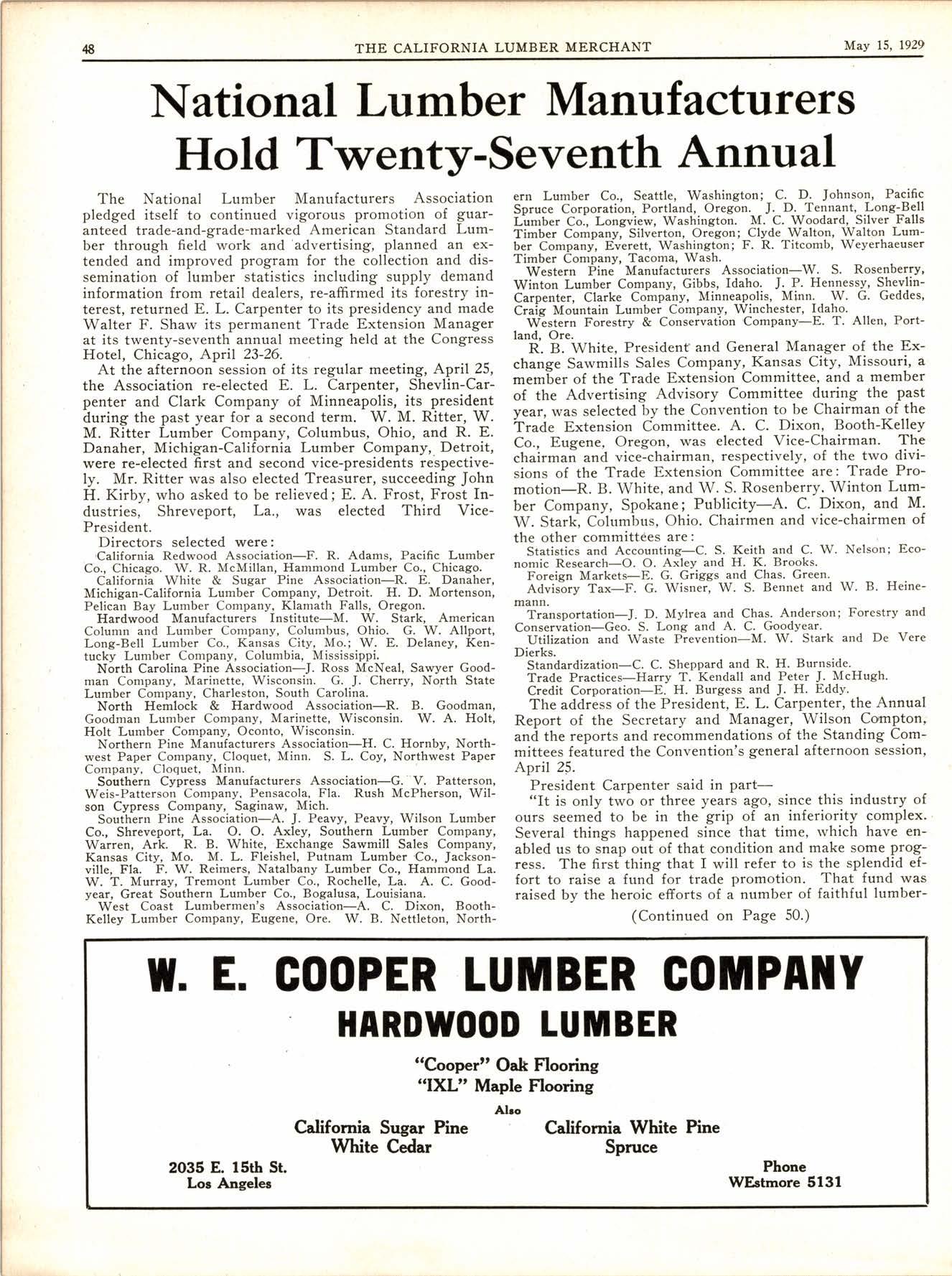
1 minute read
BUSINESS CARDS
SUGAR PINE
Autotuatic Firi Sprinkler Systems
Ark Harry H. McCern
31O Central Bldg. - TRinity 1057 - Loc Angeler
LET US SELL YOUR LUMBER IN TEXAS
IV. H. NORRIS
LUMBER CO.
HOUSTON, Texae
W. M. BEEBE
Southem-HARDWOODS-,,Southern Oak Flooring and Maple Flooring
1109 Fint National Bank Buildins
Telephone Douglar 9117
HARDWOOD LUMBER ",il[L C. [[. B()HNH()FF "n""rs"
Phone 15OO S. Alameda St.
WEstmore 2/|d;6-2447 - LOS ANGELES
\llo Want to Sell Your llfcrtcrn l.unbcr in Tc:ar. Open to a Firrt Clar Accouat.
1213 Inrurance Exchange Bldg.
DOORS PANEIS - I.AMINATED LUMBER FIR AND REDW(X)D LUMBER PRODUCTS
Oregon's New Reforestation Law
The state of Oregon now has a new reforestation law in force and practice, that has been described by Col. W. B. Greely, former Chief of the United States Forestry Service and now Secretary-Manager of the West Coast Lumbermen's Association, as "the most promising legislation of this character yet adopted by any Ameiican commonwealth."
It has been eight years in the making, and the fundamental principles upon which the law is based are the result of thorough study and contemplation of the results desired.
The basic features of this new law are that lands upon which timber is being grown shall be definitely classihed as "fore.st lands"; an-ainual tax of 5 cents pei acre shall be charged upon all such lands; and when forest products are harvested from these lands a tax of I2l per ceit of the gross yield shall be levied and collected.
The 5 cents per acre recognizes the current needs of the counties for a minimum revenue for its support, at the same time making it possible for the owner of the land to carry it at low current cost over the long period of time that must elapse before there can be any income from the forest crop. Thus the two cardinal principles of re-growing forests are taken into full consideration.
The principle of taxing cut-over lands at regular valuations in all the great timber states results in the owners allowing them to become tax delinquent, and becomes a great burden to the state. This Oregon law seeks to solve this problem, and induce timber owners to keep their lands and encourage the re-growth of timber.
The l2l per cent gross valuation tax on the harvested product recognizes a fundamental principle of taxation, towit: that a tax levy should be wisely made at the time when the owner can best afford to make payment.
It is confidently expected that the operation of this law will cause thousands of acres per year to be kept by their owners and designated as "forest lands", instead of becoming tax delinquent, and that in a generation from now the harvest will be coming in.










